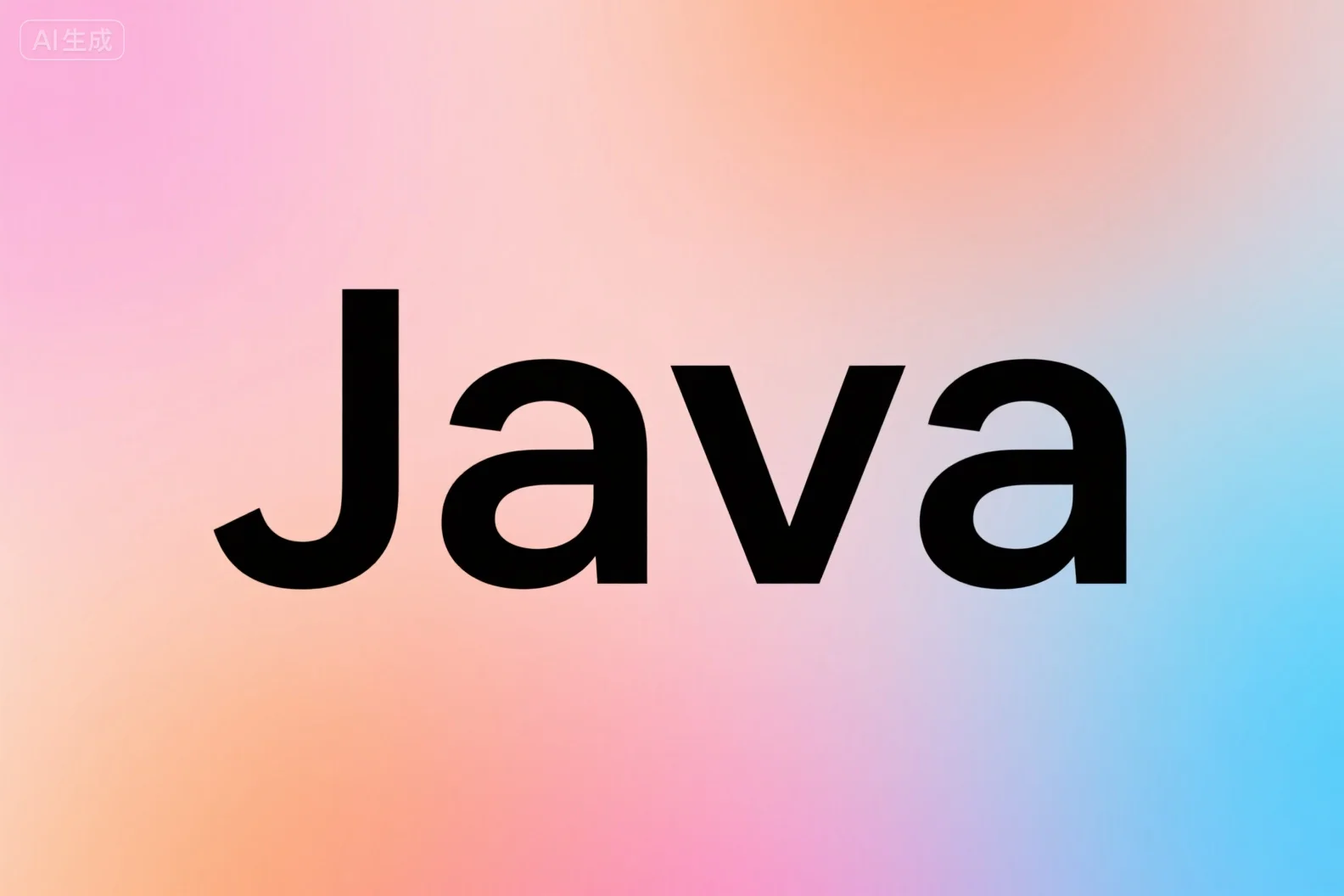Concurrency
| 解决方案 | 典型场景 | 关键优势 | 注意事项 |
|---|---|---|---|
synchronized | 单 JVM 简单同步 | 使用简单,JVM 内置支持 | 锁粒度控制不当导致性能问题 |
ReentrantLock | 需要锁高级特性(可中断/公平/超时) | 可中断、超时、公平锁 | 必须手动释放锁 |
| 读写锁 | 读多写少的共享数据 | 提升读并发性能 | 写锁饥饿问题 |
| 原子类 | 计数器 / 状态标志 | 无锁高性能 | 不适用于复杂操作 |
| 阻塞队列 | 生产者-消费者模型 | 解耦生产消费速度 | 队列大小设置需谨慎 |
CountDownLatch | 主线程等待子任务完成 | 灵活的任务协调 | 一次性使用 |
CompletableFuture | 异步任务编排 | 强大的链式调用 | 回调地狱风险 |
| 不可变对象 | 配置信息等只读数据 | 天然线程安全 | 需要创建新对象 |
ThreadLocal | 线程封闭(如日期格式化) | 避免同步开销 | 内存泄漏风险 |
| Redis 分布式锁 | 跨 JVM 资源控制(如库存扣减) | 解决分布式协调问题 | 需处理锁续期、故障转移 |
| 并行流 | CPU 密集型数据处理 | 自动利用多核 | 不适合 IO 密集型任务 |
- 优先考虑无锁方案(原子类、不可变对象)。
- 读写分离场景使用读写锁。
- 任务协调使用
CountDownLatch/CyclicBarrier。 - 分布式环境必须用外部协调服务(Redis / ZooKeeper)。
- 复杂异步流程使用
CompletableFuture。 - 避免过早优化,先保证正确性再提升性能。
基础同步机制
synchronized
基于 JVM 内置锁(监视器锁),保证同一时刻只有一个线程访问临界区。
• 并发不高、临界区短小、逻辑简单;不想额外引入 Lock 对象。 原理 • JVM 对象头 Mark Word + 监视器(Monitor);JDK6 之后有偏向/轻量/重量三级优化。 代码
public class Counter {
private int count = 0;
// 同步方法
public synchronized void increment() {
count++;
}
// 同步代码块(更细粒度控制)
public void decrement() {
synchronized(this) {
count--;
}
}
}
volatile
确保变量修改的可见性(禁止指令重排序),不保证原子性。
public class TaskRunner {
private volatile boolean isRunning = true; // 保证可见性
public void stop() {
isRunning = false; // 一个线程修改
}
public void run() {
while(isRunning) { // 多个线程读取
// 执行任务
}
}
}
JUC工具包
原子类
无锁的计数器/状态更新
• 高频、竞争不激烈的计数器 / 累加器(接口调用次数、日志序号等)。 原理 • 基于 CAS(Compare-And-Swap)实现无锁线程安全,一条 CPU 指令完成“读-改-写”。 代码
public class AtomicCounter {
private final AtomicInteger count = new AtomicInteger(0);
// 线程安全的自增
public void increment() {
count.incrementAndGet(); // CAS操作
}
// 高并发场景更优的计数器(Java 8+)
public void highConcurrencyIncrement() {
LongAdder adder = new LongAdder();
adder.increment(); // 分段CAS,减少竞争
}
}可重入锁
ReentrantLock:需要尝试获取锁、超时机制或公平锁的场景
• 需要“可中断、可超时、公平性、多条件队列”等高级功能; • 替代 synchronized 在竞争激烈时获得更好吞吐量。
public class Account {
private final Lock lock = new ReentrantLock();
private int balance = 1000;
public boolean transfer(int amount) {
if (lock.tryLock(1, TimeUnit.SECONDS)) { // 尝试获取锁
try {
if (balance >= amount) {
balance -= amount;
return true;
}
} finally {
lock.unlock(); // 必须手动释放
}
}
return false;
}
}
读写锁
ReentrantReadWriteLock 读多写少的共享数据(如缓存系统)
public class DataCache {
private final Map<String, String> cache = new HashMap<>();
private final ReadWriteLock rwLock = new ReentrantReadWriteLock();
public String get(String key) {
rwLock.readLock().lock(); // 获取读锁(可并发)
try {
return cache.get(key);
} finally {
rwLock.readLock().unlock();
}
}
public void put(String key, String value) {
rwLock.writeLock().lock(); // 获取写锁(独占)
try {
cache.put(key, value);
} finally {
rwLock.writeLock().unlock();
}
}
}
阻塞队列
BlockingQueue
生产者-消费者模型
public class LogProcessor {
private final BlockingQueue<String> queue = new ArrayBlockingQueue<>(100);
// 生产者
public void produceLog(String log) throws InterruptedException {
queue.put(log); // 队列满时阻塞
}
// 消费者
public void consumeLogs() {
new Thread(() -> {
while (true) {
String log = queue.take(); // 队列空时阻塞
processLog(log);
}
}).start();
}
private void processLog(String log) { /* 处理日志 */ }
}
CountDownLatch
场景:主线程等待多个子任务全部完成后再汇总。
public class StartupManager {
public void startServices() throws InterruptedException {
CountDownLatch latch = new CountDownLatch(3);
// 启动三个服务
new Thread(() -> { startDB(); latch.countDown(); }).start();
new Thread(() -> { startCache(); latch.countDown(); }).start();
new Thread(() -> { startAPI(); latch.countDown(); }).start();
latch.await(); // 等待所有服务启动
System.out.println("所有服务已就绪!");
}
}CompletableFuture
异步任务编排
public class OrderService {
public CompletableFuture<Order> processOrderAsync(Order order) {
return CompletableFuture.supplyAsync(() -> validate(order))
.thenApplyAsync(this::calculatePrice)
.thenApplyAsync(this::applyDiscount)
.thenComposeAsync(this::saveToDatabase);
}
// 示例:组合多个异步任务
public CompletableFuture<Void> executeParallelTasks() {
CompletableFuture<String> task1 = CompletableFuture.supplyAsync(() -> "Task1");
CompletableFuture<String> task2 = CompletableFuture.supplyAsync(() -> "Task2");
return CompletableFuture.allOf(task1, task2)
.thenRun(() -> System.out.println("所有任务完成"));
}
}
无锁编程与特殊场景
不可变对象
场景:共享数据只读不写(如配置信息)
// 所有字段final + 无setter
public final class ImmutableConfig {
private final String serverUrl;
private final int timeout;
public ImmutableConfig(String url, int timeout) {
this.serverUrl = url;
this.timeout = timeout;
}
// 只有getter方法
public String getServerUrl() { return serverUrl; }
public int getTimeout() { return timeout; }
}
ThreadLocal
场景:线程封闭(如 SimpleDateFormat 安全使用)
public class DateFormatter {
// 每个线程独立副本
private static final ThreadLocal<SimpleDateFormat> formatter =
ThreadLocal.withInitial(() -> new SimpleDateFormat("yyyy-MM-dd"));
public String format(Date date) {
return formatter.get().format(date); // 线程安全
}
}分布式并发控制
Redis 分布式锁(Redisson 实现)
场景:跨 JVM 的共享资源控制(如库存扣减)
public class InventoryService {
private final RedissonClient redisson;
public boolean deductStock(String itemId, int quantity) {
RLock lock = redisson.getLock("LOCK_STOCK:" + itemId);
try {
// 尝试加锁(等待10秒,锁有效期30秒)
if (lock.tryLock(10, 30, TimeUnit.SECONDS)) {
int stock = getStockFromDB(itemId);
if (stock >= quantity) {
updateStock(itemId, stock - quantity);
return true;
}
}
return false;
} finally {
lock.unlock(); // 确保释放锁
}
}
}
← Previous postFastApi框架源码赏析-路由模块
Next post →Python爬虫系统架构设计

